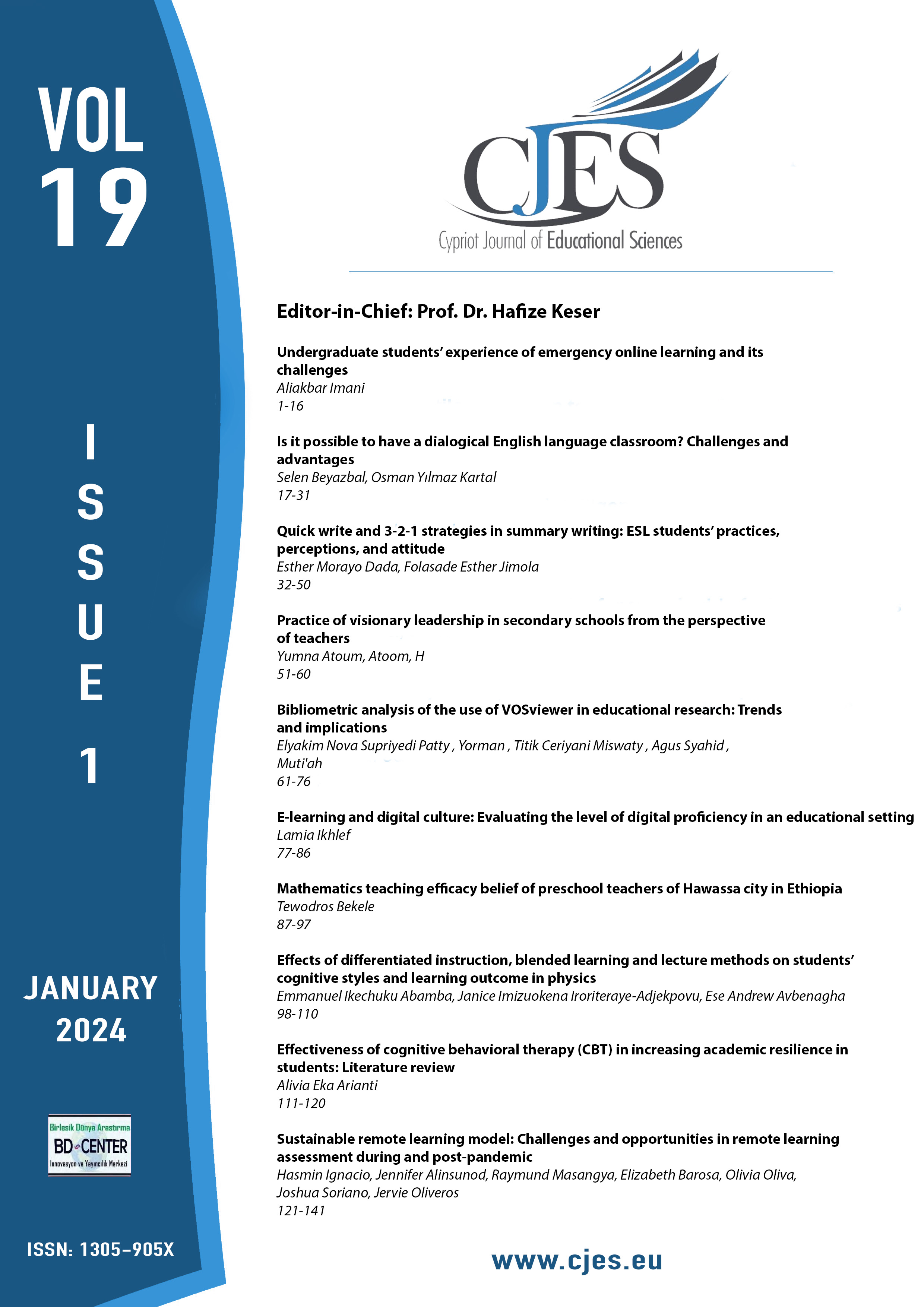E-learning and digital culture: Evaluating the level of digital proficiency in an educational setting
Main Article Content
Abstract
The COVID-19 pandemic underscored the significance of distance learning, highlighting its necessity when in-person education is not feasible. This article explores the challenges faced by the Ministry of Higher Education in Algeria in transitioning to distance learning, particularly the digital divide and the adaptation to new technologies. The purpose of this study was to evaluate the digital culture among students to improve remote learning. Using a purposive sampling method, the current study selected students who have participated in online courses to assess their digital literacy and identify areas needing enhancement. The findings indicate that while Algeria shows promise for integrating digital culture into distance education due to favorable socio-economic conditions, challenges such as technological access and digital security persist. Key recommendations include increasing computer access, implementing digital security measures, and customizing distance learning approaches to meet diverse needs. Addressing these disparities is crucial for promoting digital literacy and ensuring equitable access to technology.
Keywords: Appropriation; digital culture; digital divide e-learning; information and communication technology.
Downloads
Article Details

This work is licensed under a Creative Commons Attribution 4.0 International License.
Cypriot Journal of Educational Sciences is an Open Access Journal. The copyright holder is the author/s. Licensee Birlesik Dunya Yenilik Arastirma ve Yayincilik Merkezi, North Nicosia, Cyprus. All articles can be downloaded free of charge. Articles published in the Journal are Open-Access articles distributed under a CC-BY license [Attribution 4.0 International (CC BY 4.0)].
Birlesik Dunya Yenilik Arastirma ve Yayincilik Merkezi (BD-Center)is a gold open-access publisher. At the point of publication, all articles from our portfolio of journals are immediately and permanently accessible online free of charge. BD-Center articles are published under the CC-BY license [Attribution 4.0 International (CC BY 4.0)], which permits unrestricted use, distribution, and reproduction in any medium, provided the original authors and the source are credited.

